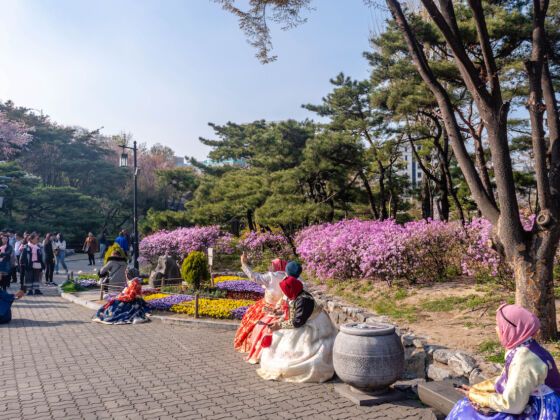An afternoon prayer call sounding from the Central Seoul Mosque drowns out the ambient blare of storefront K-Pop and shouts of taxi drivers as Seoulite Muslims scale the steep cobblestone path to gather together in worship.
The cookie-cutter framework of modern urban Korean architecture gives way all at once to colossal columns and arches that hover impressively over Itaewon, the neighborhood itself a testament to the contained, yet explosive expansion of multiculturalism in Korea in recent years. Other prominent cultural communities of the area are largely based on parameters like ethnicity and language, while the Muslim community of Seoul is diverse in and of itself, creating a very small but dynamic subculture decorated with influence spanning dozens of countries, evident among the array of faces, languages, and accents layered beneath the uniform hijabs and prayer sets.
